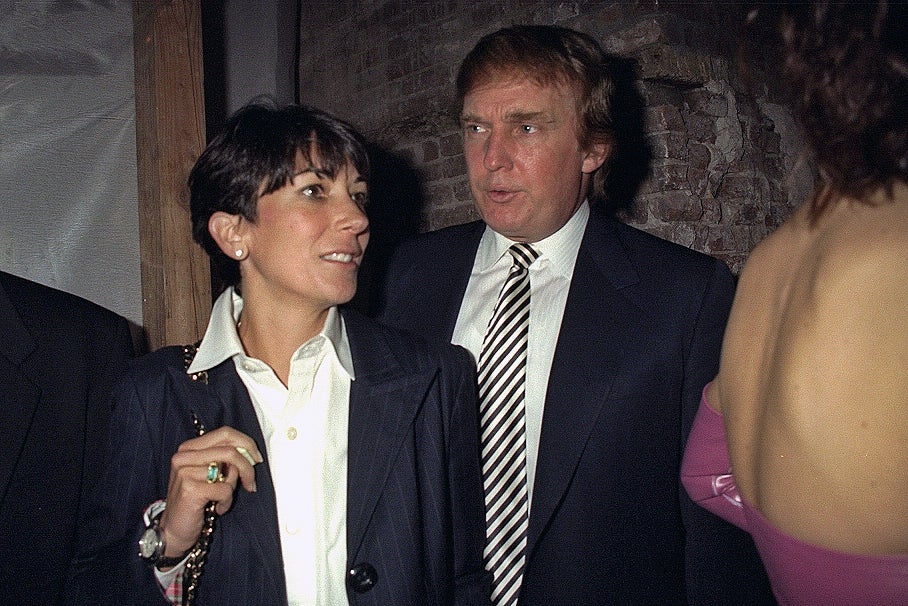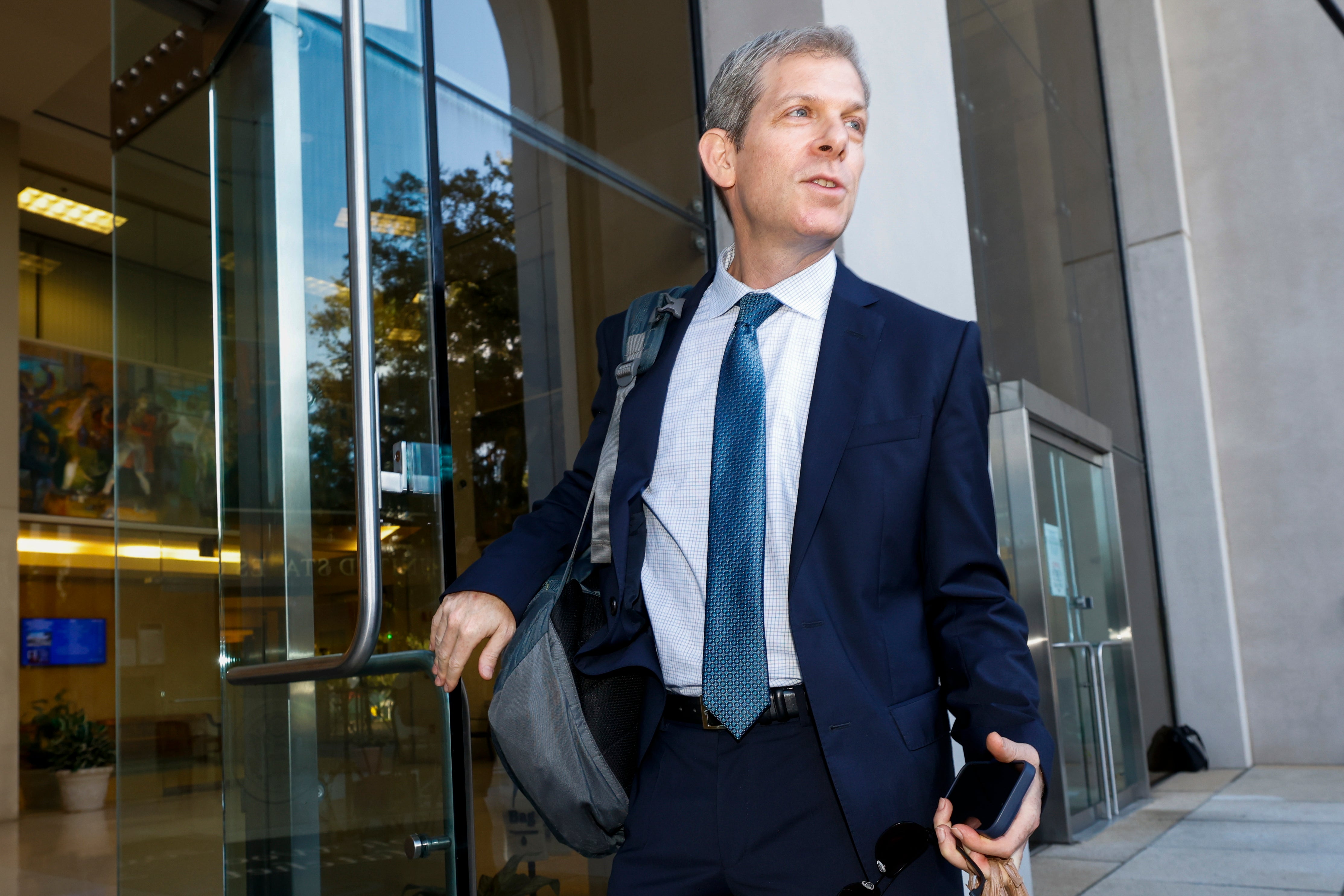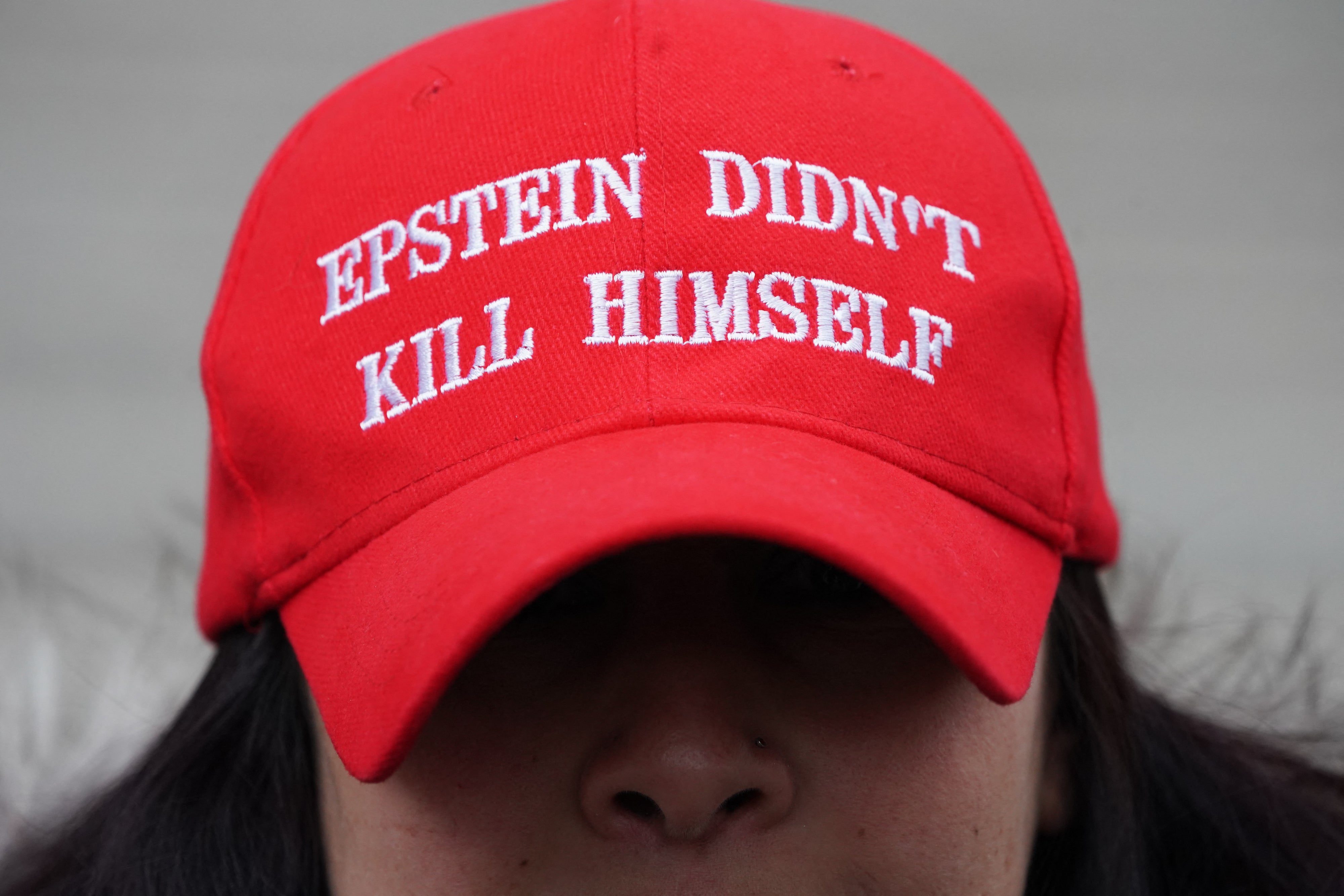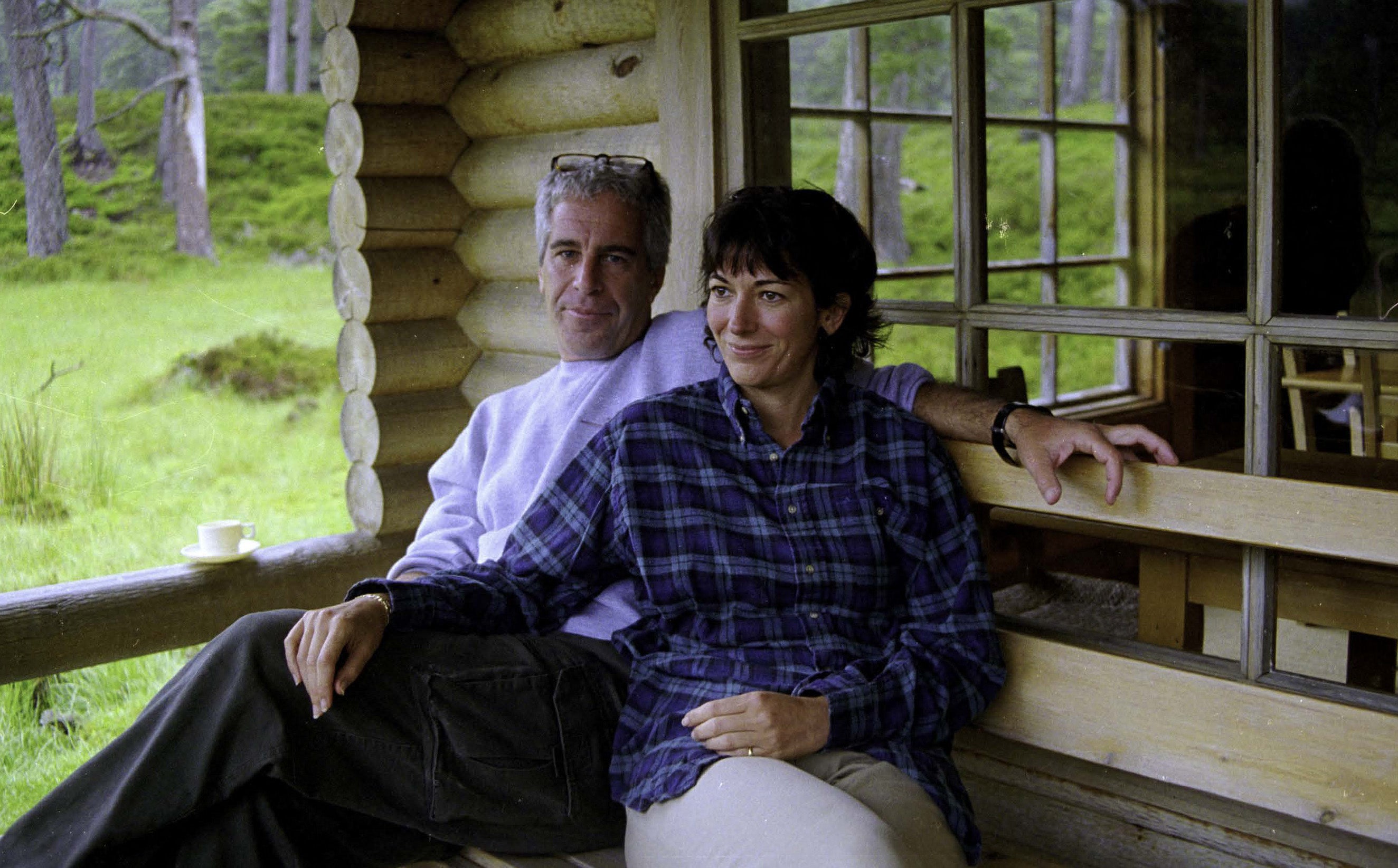Over the course of a decade, Ghislaine Maxwell “facilitated and participated in the sexual abuse of multiple young girls” alongside her partner Jeffrey Epstein while enjoying a “life of extraordinary luxury and privilege,” according to federal prosecutors.
From 1994 to 2004, Maxwell and Epstein worked together to groom young girls — some as young as 14 years old — and enticed them to travel to Epstein’s properties, prosecutors said. During a monthlong trial in 2021, survivors testified in federal court in Manhattan that Maxwell had groomed them, took their passports, and sexually abused them.
Four victims testified. Prosecutors argued she had lured them into a false sense of security by presenting as a “glamorous, older woman” who normalized a culture of abuse and silence that shrouded her and Epstein, according to a sentencing memorandum. The federal judge overseeing the case said Maxwell “played a pivotal role” in their abuse.
Four years later, President Donald Trump has, notably, nothing negative to say about the case against a woman he knows, the accusations against her, or the jury’s verdict.
The president — whose years-long relationship with Epstein and revived allegations of abuse involving the convicted sex offender are under intense public scrutiny — has not ruled out pardoning Maxwell.

Maxwell, who is now 63, is not scheduled to be released from prison until 2040. She appealed her conviction to the Supreme Court, which the Department of Justice opposes. Her best chance of early release is a presidential pardon, and legal experts warn that his public statements suggesting that a pardon is even remotely on the table could encourage Maxwell to do anything she can to secure one.
Her attorney David Markus said she would “welcome” one.
It’s unclear whether anyone involved with Maxwell’s case — from Justice Department interviews to the president’s public musings on a potential pardon — have considered the impacts to her victims.
Former Justice Department pardon attorney Liz Oyer says those discussions have been “shockingly overlooked.”
“Nobody is talking about how the victims may feel even by these discussions being had,” she told All Rise.
Teresa Helm, who had testified against Maxwell, told MSNBC the consequences of a pardon “would mean the complete crumbling of this justice system that should first and foremost stand for, fight for and protect survivors.”
Pardoning Maxwell would be “extremely problematic and would be a huge loss for individuals like myself,” witness and Epstein accuser Annie Farmer told the BBC.
On August 11, Maxwell is scheduled to sit for a jailhouse deposition sought by the GOP-led House Oversight Committee. In a letter to the committee, her attorneys have asked for some immunity protections — and made another appeal to Trump for clemency.
“If Ms. Maxwell were to receive clemency, she would be willing — and eager — to testify openly and honestly, in public, before Congress in Washington, D.C.,” according to the letter, Maxwell’s legal team provided to The Independent. “She welcomes the opportunity to share the truth and to dispel the many misconceptions and misstatements that have plagued this case from the beginning.”
Her attorneys insist she did not receive a fair trial, which served as a “scapegoat” after Epstein’s death.
The Independent has requested comment from Maxwell’s attorneys.

A central question is whether she is telling the truth.
Trump’s own Justice Department in 2020 said she “brazenly” lied under oath. The judge who oversaw her federal criminal case said she failed to show any “acceptance of responsibility” for her actions.
Oyer told CBS News that Maxwell is likely “desperate to get out from under that sentence,” adding that “it’s hard to really believe that the Justice Department would rely on anything that she might have to say.
“She has a live criminal appeal. It doesn’t make sense that she’d jeopardize it unless she gets some kind of immunity,” wrote journalist Jacob Shamsian, who extensively covered Maxwell’s cases. “And if she does, how can you trust her? She has every incentive in the world to get out of her 20-year sentence.”
Democratic Senators Dick Durbin and Sheldon Whitehouse have sought a public commitment that the Justice Department will not advocate for a pardon or commute Maxwell’s sentence.
The senators called it “highly unusual” for deputy attorney general Todd Blanche — Trump’s former criminal defense attorney — to interview Maxwell, rather than the prosecutors who are familiar with the case.
The Trump administration fired Maurene Comey, one of the prosecutors who successfully brought the case against Maxwell, and who questioned witnesses and abuse survivors who testified against her.
Durbin and Whitehouse warned that her “documented record of lying and her desire to secure early release” may lead her to “provide false information or selectively withhold information in return for a pardon or sentence commutation.”

When charges were first announced in July 2020, Trump — whose friendship with Epstein spanned roughly the same time period at the center of Maxwell’s case — claimed that he wasn’t “following the case” but said “I wish her well.”
“I just wish her well, frankly,” he told reporters at the White House at the time. “I’ve met her numerous times over the years, especially since I lived in Palm Beach and I guess they lived in Palm Beach. But I wish her well, whatever it is.”
Last week, when asked whether he was considering pardoning her in exchange for her cooperation in the Epstein investigation, Trump said he was “allowed to do it.”
Later, he said he “can’t talk about pardons” while Blanche continues to speak with Maxwell.
On Saturday, he said it was “no time to be talking about pardons,” and on Monday, he stressed that he was “allowed” to pardon Maxwell, “but nobody has approached me with it.”

Maxwell’s trial was largely seen as the public reckoning against Epstein that the convicted sex offender never received. Epstein died in his jail cell in 2019 following his arrest before his own trial on sex trafficking charges.
“Ms. Maxwell is not punished in place of Epstein,” New York District Judge Alison Nathan said at her sentencing hearing in 2022. “Ms. Maxwell is being punished for the role that she played.”
Nathan called Maxwell’s conduct “heinous and predatory,” and the 20-year prison sentence imposed on her was intended to “acknowledge the harm that Ms. Maxwell has caused.”
The cases were also enmeshed in wider conspiracy theories amplified by the president and his allies that powerful Democratic figures are trafficking children, claims at the center of so-called “Pizzagate” and QAnon communities that infected wider Republican politics.
But the Trump administration’s failure to release so-called “files” surrounding the Epstein case, which critics had hoped to reveal public figures who exploited and abused young girls while, has fueled allegations that the president is participating in a cover up.
After handing binders of mostly previously released evidence in the Epstein case to far-right influencers in February, Bondi reportedly told Trump his name appeared in unreleased files. The Justice Department had reportedly worked around clock to clear 100,000 files connected to the case for public release — but never released them.
Elon Musk — who earlier this year tossed what he called a “bomb” into his falling out with Trump by accusing the president of being in the “files” — has amplified allegations that Maxwell intends to implicate Democratic officials in the investigation.
The idea goes: spurious evidence presented by Maxwell would reaffirm the president’s claims he did “nothing wrong” during his relationship with Epstein while a guilty Trump reaps praise from his base for taking down pedophiles.
On his X account, Musk responded to a viral post detailing the allegations with a bullseye emoji.
Any revelations from Maxwell’s testimony with the help of Trump, who is desperate to change the conversation, could generate a generate a storm of distractions. A pardon quid pro quo would risk political blowback for Trump and his enablers while adding more fuel to allegations of a cover up.
Inflaming the tension is a report from The Wall Street Journal that accused the president of writing a bawdy birthday card to Epstein in 2003, which allegedly included “several lines of typewritten text framed by the outline of a naked woman,” with a birthday wish that “may every day be another wonderful secret.” Trump has denied ever writing such a note and sued the newspaper, its publishers and the journalists whose bylines appeared on the story for $10 billion.
The person who could speak to the authenticity of that message and allegations against Trump is Maxwell, who allegedly asked for birthday greetings from Epstein’s friends and put them together in a book for him.
During a two-day interview with Blanche, Maxwell answered questions about “about 100 different people” with potential ties to the Epstein ring, according to her attorney.
In exchange, Maxwell was offered a limited form of immunity that would prevent prosecutors from using statements against her in a criminal case.
Following her interview with Blanche, Markus said she answered “all of the questions truthfully, honestly and to the best of her ability.”




